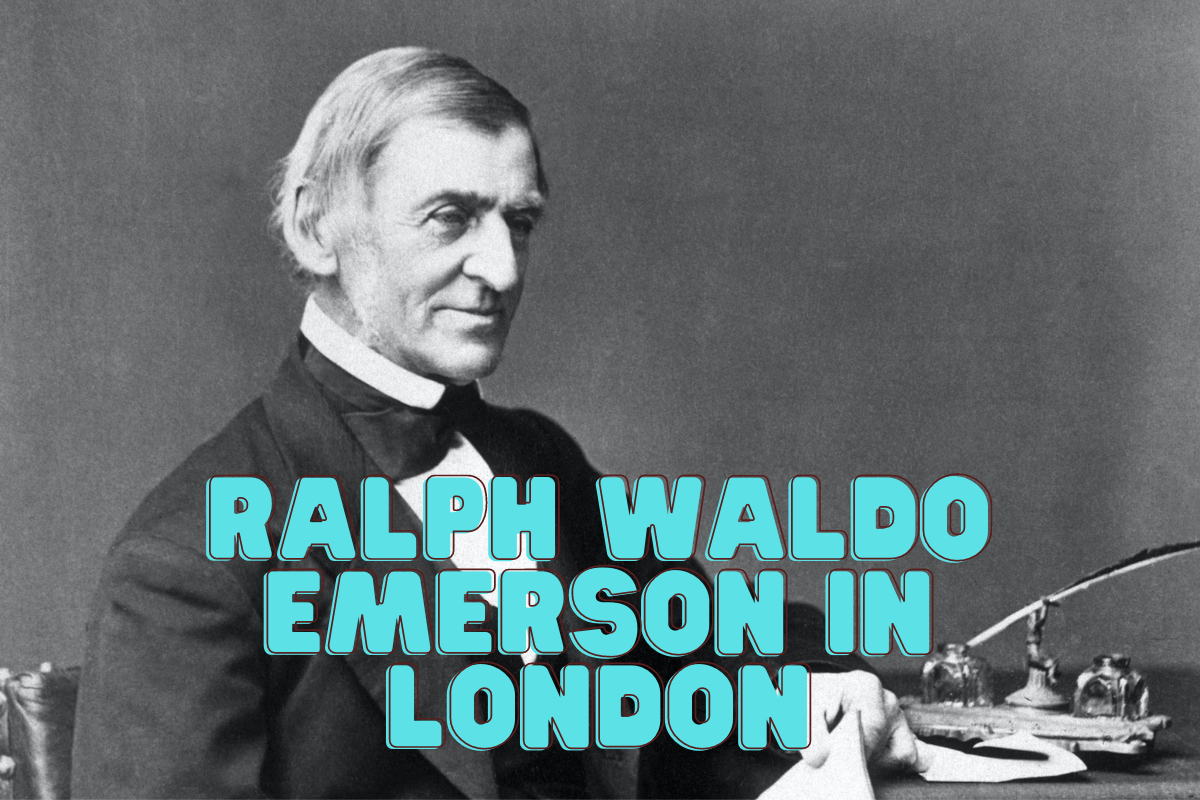In 1833, Ralph Waldo Emerson visited England and sought to meet the men who had been his inspirations. One of these individuals was Thomas Carlyle, described as a ‘lonely scholar.’ This encounter began a challenging and tumultuous relationship between the two.
Read: Radical Frontiers in the Spaghetti Western
Emerson’s Connection with Carlyles: A Transformative Encounter in 1833
Emerson’s connection with Thomas and Jane Carlyle began in 1833 when he arrived as a stranger at their secluded home in the Scottish wilderness. Emerson carried a letter of introduction from Gustave d’Eichthal, a French socialist and friend of Carlyle. At the time, Carlyle was a relatively unknown writer in his late thirties.
Emerson’s interest in meeting him stemmed from reading Carlyle’s critical work in the Edinburgh Review. Despite facing strains at times, their friendship and correspondence lasted until Carlyle’s death in 1881.

Emerson’s first visit to Britain occurred after the death of his first wife, Ellen, in 1831. Emerson, in his late twenties and without a literary career, had led a conventional life, following his father’s path to Harvard, divinity studies, and becoming a Unitarian minister in Boston.
In 1832, Emerson was in deep emotional anguish, mourning Ellen’s death and grappling with a career crisis. He resigned from his ministry and contemplated a new career as an editor but felt too burdened by sorrow. To escape, he abruptly decided to go to Europe and sailed from Boston in December 1832.
Emerson’s Evaluations of European Encounters and Its Impact on His Life
In his travel memoir “English Traits,” Ralph Waldo Emerson avoids providing definitive remarks on the importance of his initial trip to England and Europe. While interacting with figures like Landor, Coleridge, Wordsworth, and Carlyle, Emerson’s praise is tempered with subtle judgments.
While waiting for his return ship in Liverpool, the writer expresses his disappointment in journal entries. He concludes that the men he had met were “all deficient,” as they lacked insight into religious truth. For him, religious truth means believing that “God is in every man.”
Emerson’s experience played a crucial role in regaining control of his life. After returning to Massachusetts in a better state of mind, he pursued a writing career with a modest income from his wife’s estate. Inspired by his observations at Jardin des Plantes in Paris, he delivered lectures on natural history and published his first significant philosophical work, Nature.
Personally, Emerson moved forward from his loss, remarried Lidia (later Lidian) Jackson in 1835, and started a family. The trip strengthened his belief that there was no insurmountable gap separating him from the great writers of the old world regarding moral strength, personal power, or ability.
It fueled his determination to deliver his prophetic message about God’s presence in all to a broader audience than the Church could provide. Emerson’s career as a writer and lecturer on the secular circuit commenced immediately upon his return.
Emerson’s Literary Phenomenon and Return to England in 1847
In the fourteen years following his initial visit, Ralph Waldo Emerson became a literary sensation on both sides of the Atlantic. When he returned to England in 1848 for an extensive lecture tour, his fame had already reached great heights.
No longer an obscure tourist, he now stood as a cultural beacon in the spotlight. However, the underlying despair, confusion, and melancholy that had driven him to Europe in 1832 had not been permanently eradicated. His return in 1847 could still be traced back to those sentiments.
Encounter with Carlyle in 1847
Upon arriving in England in October 1847, Emerson had nearly a fortnight before his lecture series began in Manchester. Eager to meet with Thomas Carlyle, Emerson responded to an invitation to visit London.
He had served as Carlyle’s unpaid literary agent in America since their brief meeting in 1833. Despite Carlyle’s earlier support, their initial meeting in 1847 did not go well and revealed significant disagreements.
A Day with Carlyle in 1847
Carlyle hurried to finish an article about the unpublished letters of Oliver Cromwell before Ralph arrived. The following morning, Emerson and Carlyle walked two miles through London, passing notable landmarks like Hyde Park, Buckingham Palace, St James’s Palace, and Trafalgar Square.
They visited the recently relocated National Gallery and stopped at John Chapman’s bookshop, Emerson’s London publisher. Emerson would later reside in the same building during the spring and summer of 1848.
Emerson documented his observations of Carlyle’s demeanor throughout the day, highlighting his intensity, frustration, and gloominess. Carlyle’s strong religious views and impatience towards Christendom and Jewdom made him a profoundly unhappy man, seemingly isolated and discontented with the world around him.
The Carlyles, however, began to resent Emerson’s presence almost immediately. On the 28th, Jane Carlyle wrote a disparaging letter about Emerson to her friend, Lady Harriet Baring:
….So far, everything has gone better than your predictions; they do not yet hate each other. Carlyle still refers to Emerson as “a most polite and gentle creature! A man of really quite Sepharic nature! though on certain sides of him overlaid with mad rubbish.” Emerson, in confidence, refers to Carlyle as “a good Child(!) in spite of all his deification of the Positive, the Practical – most astonishing for those who had first made acquaintance with him in his Books!”
Emerson is indeed polite and gentle; he skillfully avoids opportunities for disagreement. When forced into it, he yields under the most provoking contradictions with the softness of a feather bed.
As for the rest, I’m unsure what to think of him or whether I like him. Emerson seems to have two faces that constantly shift, one young and refined, almost beautiful, radiating with a sense of virtue, and the other decidedly old, hatchet-like, crotchety, and inconclusive, like an incarnation of one of his own poems. In speech, he is not dogmatic at all, and despite odd applications of the words “beauty” and “child,” he speaks simply and clearly, lacking eloquence or warmth.
What he seems to lack is a genuine, heartfelt geniality. He is perhaps the most elevated man I have ever seen, but it is the elevation of a reed, all height without breadth. You might not dislike him as you expected, but you won’t like him either. He is scheduled to have breakfast with Rogers tomorrow morning and then go to Liverpool to lecture. I believe he will find lodgings when he returns to London as a lecturer.
Carlyle, I’m sure, is disappointed, thinking Emerson is a man of no significance if he were to tell the truth. However, he is still under the grace of hospitality and regards consistency. Besides, he has had no chance to express his thoughts to me, as we have not had five minutes together since Emerson arrived. Emerson stays up late and is up early, making me feel like I’ve caught the measles or something similar…..
Ever most truly / Yours / Jane Carlyle… / Please burn the letter
Dispute Over Cromwell and the Fracturing Friendship
At a certain point during the visit, a disagreement arose between Emerson and Carlyle regarding Oliver Cromwell, the Puritan dictator and subject of Carlyle’s recent work. Emerson did not share Carlyle’s view of Cromwell as the great hero of the seventeenth century. In expressing his inability to appreciate Cromwell similarly, Carlyle responded by turning “quite fiercely” upon him.
In one account by George Searle Phillips, it is said that Carlyle stood up from his chair and drew a line across the table with his finger. And declared with intense fierceness that there was now a clear line of separation between them. The line was described as being as wide as that and as deep as the pit.
Post-Visit Reflections and Predictions by Carlyle
The friendship between Carlyle and Emerson was never the same after this dispute. Carlyle shared his impressions of Emerson in letters, describing him as “a rather thinner man than was expected.” Predicting failure for Emerson’s upcoming lectures in the North, Carlyle believed that Emerson’s messages were “too airy and thin for the solid practical heads of the Lancashire region.”
Carlyle predicted that Emerson would have no impact in England, likening him to someone who came with a “rake rather than a shovel.” He expressed disappointment, concluding that they could never achieve any real purpose as friends in this world.
Also Read: 9 questions for Bahaa Abdelmegid


